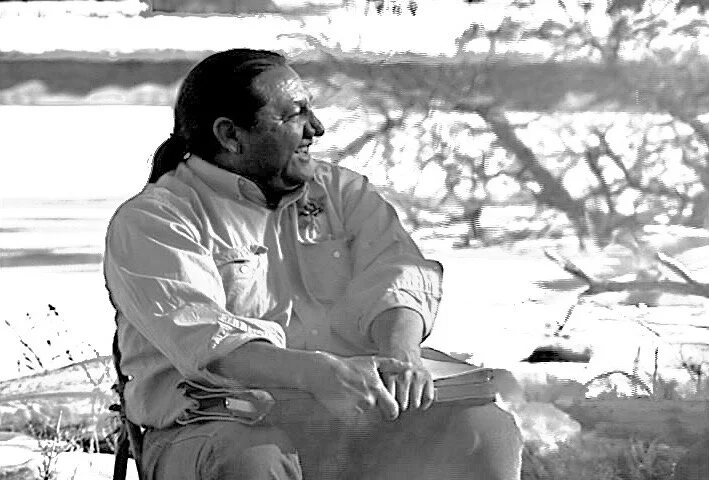“WOOOOO! To see the beauty. To see the beauty. It feels like you want to put all that beauty on top of you like that in the morning when the sun comes up and everything, you know?...and then at night, to be able to stand on Mother Earth to look out among the stars…so then things have changed and I’ve been baptized a bunch of times you know, but all that has gone…”
- Henry Real Bird on Zion National Park
Henry was born in 1948 and raised on the Crow Indian Reservation; he spoke only Crow until entering first grade. Those cultural rhythms and traditions remain the primary influence on his poetry. He earned his Master’s in Education and has taught everything from kindergarten, 4H and Head Start to serving as president of Little Big Horn College. He rode bucking broncs in rodeos until he busted his hip, which somehow led him to poetry. He has written six anthologies, four poetry collections, and twelve children’s books, which he also illustrated. He served as Montana’s Poet Laureate from 2009 to 2011, was named the 2011-2012 Academy of Western Artists Cowboy Poet of the Year, and his poetry collection “Horse Tracks” was named 2011 Poetry Book of the Year by the High Plains Book Awards.
Henry lives on his ranch along Yellow Leggins Creek in the Wolf Teeth Mountains: "Now I'm raising bucking horses, writing, and dreaming."
“I’m amazed with some of the thoughts that I’m blessed with.” - Henry Real Bird
We’d like to thank the Western Folklife Center for allowing us to use on-site recordings of Henry’s thoughts while at a Sun Dance and while horseback riding.
Listen now on all other platforms
Show Notes
Henry Real Bird’s book Wolf Teeth
Poet Laureate Henry Real Bird Rides Across Montana
Buffalo Jump: A cliff formation over which Native Americans would run buffalo or other game animals in order to kill them on a mass scale.
Battle of the Little Big Horn (June 25th)
Spotted Wolf’s Account of the Battle of Little Big Horn
Rooster Morris - the fiddler who used Henry’s poetry line: “To stand in the saddle with a heart that is good.”
Hal Cannon:
